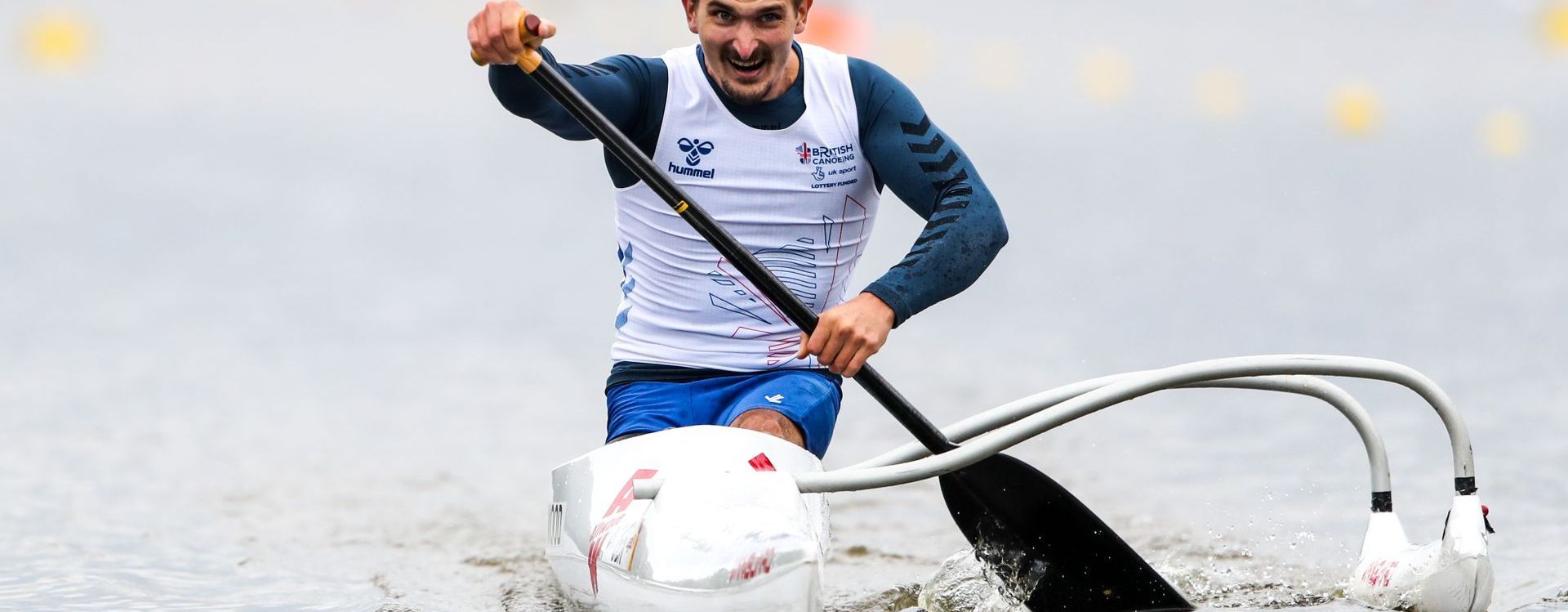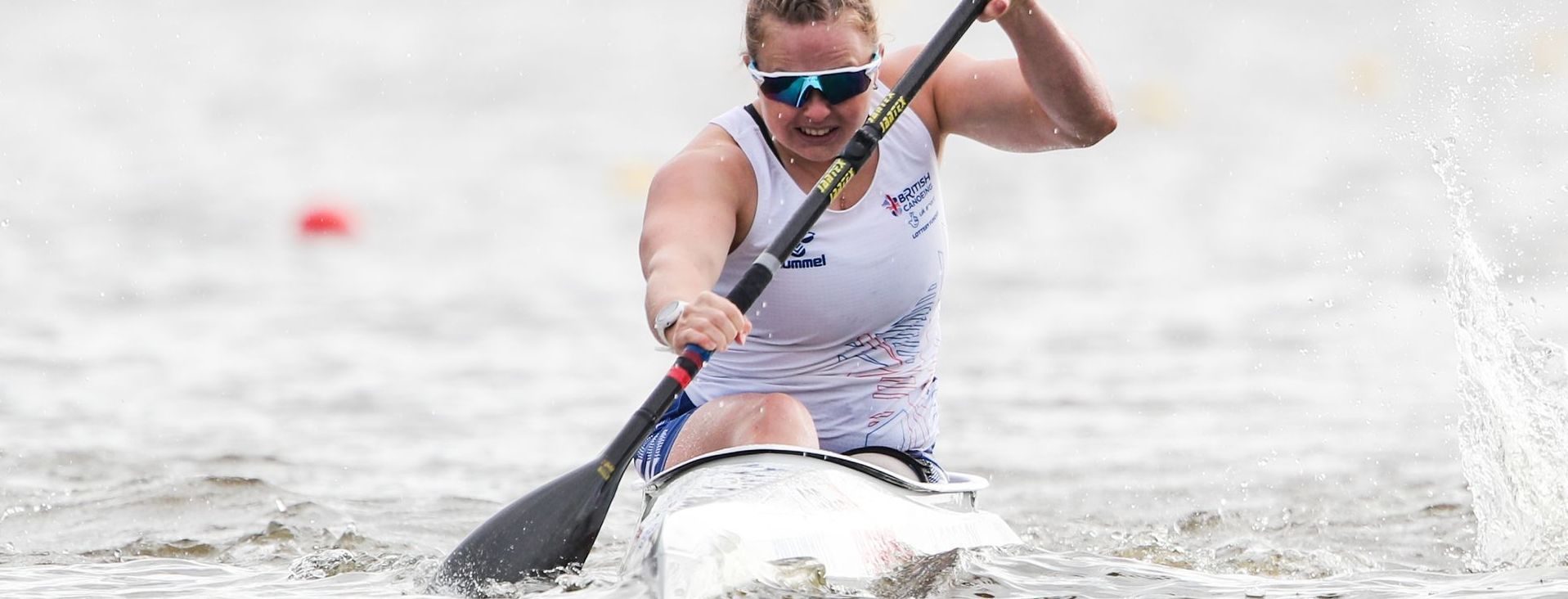Paracanoe
About Paracanoe
Paracanoe is a Paralympic sport where athletes race over a 200m distance of flat water. There are two types of boat to compete in, kayak and va’a. Kayak is the fastest discipline where the boat is propelled by the paddler using a double ended paddle. Va’a is the newer discipline having only made its Paralympic debut in Tokyo 2021. In va’a, the boat is propelled by the paddler using a single blade paddle and the balance is supported by an outrigger on one side of the boat.
Boat adaptations are a core element of paracanoe. Using foam, straps, carbon, or whatever materials are to hand, the boats can be fitted out to ensure the paddler is suitably connected to the boat. Adaptations are bespoke to each paddler and are typically developed over time through trial and error. All adaptations must be quick release and regular supervised capsize practice is encouraged.
Competition categories are dependent on type of boat and impairment classification. There are six categories for both men and women: KL1, KL2, KL3, VL1, VL2 and VL3. The first letter refers to the boat type, K for kayak and V for va’a. The number refers to the impairment classification with 1 being the most impaired and 3 the least impaired.
Classification
Details about the classification process for paracanoe can be found here
There are three eligible impairment types for paracanoe at National, International and Paralympic level:
- Impaired Muscle Power
- Impaired Passive Range of Movement
- Limb Deficiency
In November 2023, provisional changes to the classifications were announced -
read more about the changes.
Impaired Muscle Power
- Athletes with Impaired Muscle Power have a Health Condition that either reduces or eliminates their ability to voluntarily contract their muscles in order to move or to generate force.
- Examples of an Underlying Health Condition that may lead to Impaired Muscle Power include spinal cord injury (complete or incomplete, tetra-or paraplegia or paraparesis), muscular dystrophy, post-polio syndrome and spina bifida.
Impaired Passive Range of Movement
- Athletes with Impaired Passive Range of Movement have a restriction or a lack of passive movement in one or more joints.
- Examples of an Underlying Health Condition that may lead to Impaired Passive Range of Movement include arthrogryposis and contracture resulting from chronic joint immobilisation, or trauma affecting a joint
Limb Deficiency
Scottish Performance Programme
SCA Performance, through investment from sportscotland, operates programmes in Paracanoe, Sprint and Slalom to support athletes with the potential and commitment to achieve Olympic and Paralympic medals. More information can be found here.
Paddle Ability
Do you have an impairment or disability that isn’t listed as eligible for paracanoe but you want to compete in flat water racing? You can still train and race in UK National regattas and marathon competitions!
‘Paddle ability’ is a race category designed to make the sport fair for everybody by providing a step between paracanoe and mainstream sprint racing, with levels determined by how fast you can paddle over 200m & 500m.
PADDLE-ABILITY 200m CANOE and VA'A TIMEBANDS
PADDLE-ABILITY 200m KAYAK TIMEBANDS
PADDLE-ABILITY 500m CANOE and VA'A TIMEBANDS
PADDLE-ABILITY 500m KAYAK TIMEBANDS
RULES for Paddle-Ability FINAL Feb 2023
How do I get into sprint racing?
There are accessible canoe clubs all over Scotland. You can find one here or by contacting any SCA staff member or sprint committee member for advice. Absolutely anybody can paddle, sometimes we just need a bit of kit adaption to help us which any club or SCA staff member would be happy to help with. If you are interested in sprint racing/paracanoe/paddle ability, the best way to start is by joining a canoe club. Clubs regularly take on new members and will often offer taster sessions before asking you to commit to membership.
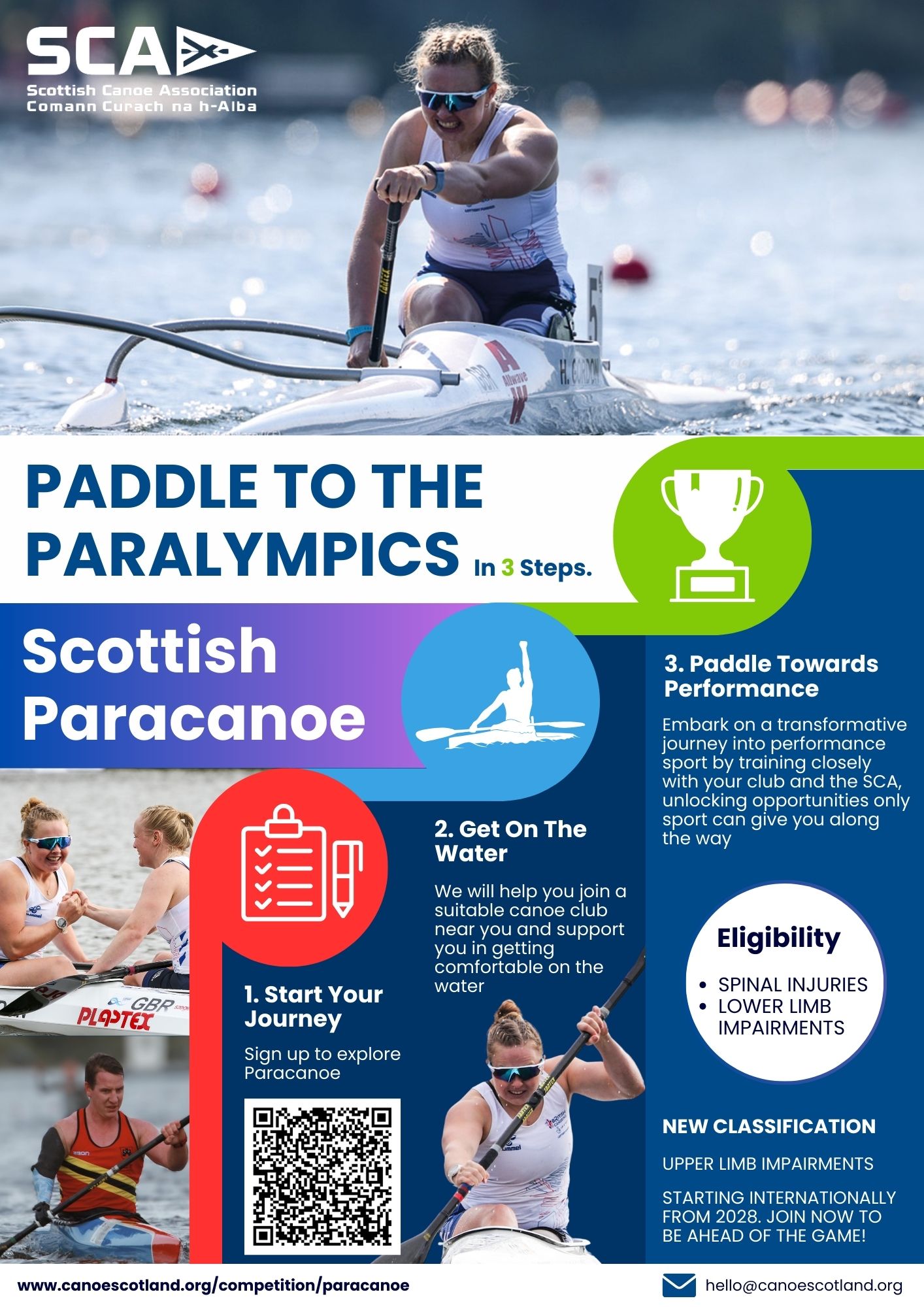
Development
Paracanoe and Paddle Ability events will be incorporated into wider sprint racing events and as such will be run through the SCA Sprint Discipline Development Group, details of which can be found on the
Sprint page.

